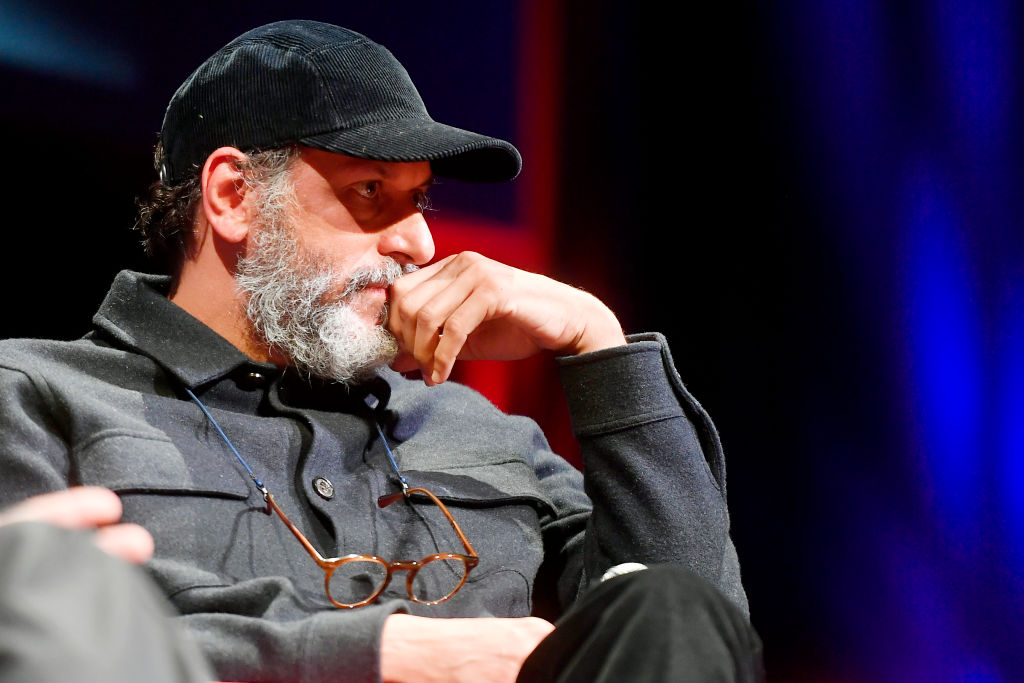
- Festivals
Guadagnino’s Masterclass at the Rome Film Festival: Aliens, Zombies, and a Fly
John Carpenter’s Starman, David Cronenberg’s The Fly, George Romero’s Dawn of the Dead, and Roberto Rossellini’s Voyage to Italy have something in common according to Italian director Luca Guadagnino: they are among his favorite films ever. An odd aesthetic choice for the acclaimed author of the 2017 delicate gay romance and intimate portrait Call Me by Your Name, nominated for three Golden Globes, including Best Picture Drama, and one Oscar nominee for Best Picture, and the film that launched the career of Timothée Chalamet among its many values. And yet some scenes with Jeff Bridges as an alien taking human resemblances, Jeff Goldblum morphing into a fly, and Romero’s spooky zombies are some of Guadagnino’s biggest inspirations as a filmmaker. That’s what the director, also known for the remake of Suspiria (2018) and the TV miniseries We Are Who We Are (2020), told the audience at a packed masterclass in Rome, Italy, at the Rome Film Fest last October.
“I loved young Jeff Bridges in 1984 Starman,” said Guadagnino answering the questions of masterclass moderator and director of the Rome Film Fest, Antonio Monda. “I remember fondly the scene when Karen Allen is awakened by some noise downstairs, and she sees a naked newborn baby on the floor in front of her amazed eyes, that not so slowly starts growing and becomes a fully grown man, naked – Jeff Bridges – who’s the exact replica of her deceased husband, Scott. The creature starts to perfectly mimic Scott’s moves which he saw in a family home video on the living room projector. Jeff Bridges is of course an alien who just landed on Earth and was able to replicate through a string of Scott’s hair found in a family album. She knows he is an alien, and yet falls in love with him, again with Scott, that is. I found this scene so well executed and so moving, and it stayed with me forever.”
Guadagnino went on to say that Bridges, as an actor, had extraordinary skill in making this alien creature feel human. “I was possessed by this movie thanks mainly to Bridge’s performance,” said the Sicily-born director, who just turned 50. “Bridges was able to channel many wonderful things. That’s why for many years when I started directing my short films and documentaries, I always added to the credits a ‘Special thanks to Jeff Bridges’, very pretentious of me! [laughs].” Guadagnino never had the chance to meet Bridges in person, “and maybe is better that way,” he quips, “just because I’m in love with him, and so this love remains untouched.”
Guadagnino has a special appreciation for the ’80s at the movies. He mentions Cronenberg’s The Fly (1986) as another example of a successful blend of story, visuals, and performance, in this case by lead actor Jeff Goldblum. “Cronenberg is able to blend science-fiction with a great sense of humanity allowing the actors to take chances and risk,” he says. “The actor clearly abandons him/herself to the director, and it is evident in The Fly. There’s a very simple scene with a close-up on Goldblum’s character who has become this disgusting creature pleading with Geena Davis, his girlfriend, to leave at once to avoid his worst instincts to prevail and eventually harm her. It is a very simple setup, with two medium blocks and a close-up. And it says a lot. I love some directors’ economy of the cinematic language. And Cronenberg uses make-up effects in an explicit way, opposite to what the horror genre usually does, hiding the effects with lights or fast cuts. He goes all in.”
Remaining in the ’80s, and backtracking to the ’70s, Guadagnino talks about French Nouvelle Vague, François Truffaut, and mainly Jean-Luc Godard. “I love Godard’s First Name Carmen, 1983. We, young filmmakers, were all very influenced by that film, and I remember that Bernardo Bertolucci was on the jury at the Venice Film Festival that year, and he lobbied strenuously for that film.”
Of course, Guadagnino studied extensively and was affected by the Italian Neo-Realism movement and everything by Federico Fellini. “Roberto Rossellini is probably the greatest director who ever lived,” he said during his masterclass introducing a scene from Voyage to Italy, 1954. “He had this ability to mix suspense and existentialism in his stories about the impossibility of love and the hope of love, and I can’t find anything better than these themes as a crystallization of the sense of cinema. Rossellini’s handling of the framing is au pair with the best Hitchcock or Fritz Lang. There is a line in Bertolucci’s Before the Revolution which says, “one can’t live without Rossellini”, and I agree.”
What does he see, then, in Romero’s zombie film, in what sense do they provide inspiration for him? moderator Monda asked Guadagnino. “I love 1978 Dawn of the Dead, with that scene in the mall in which even the security guard gets trapped in an elevator and bitten by a zombie, and becomes a zombie himself,” answers Guadagnino. “I love also how a woman and a black man manage to stay human. With its biting critique of wild consumerism, that film was ahead of its times. It’s a film that can’t be replicated, though unfortunately, they did a couple of remakes. Some movies should be left alone forever.”